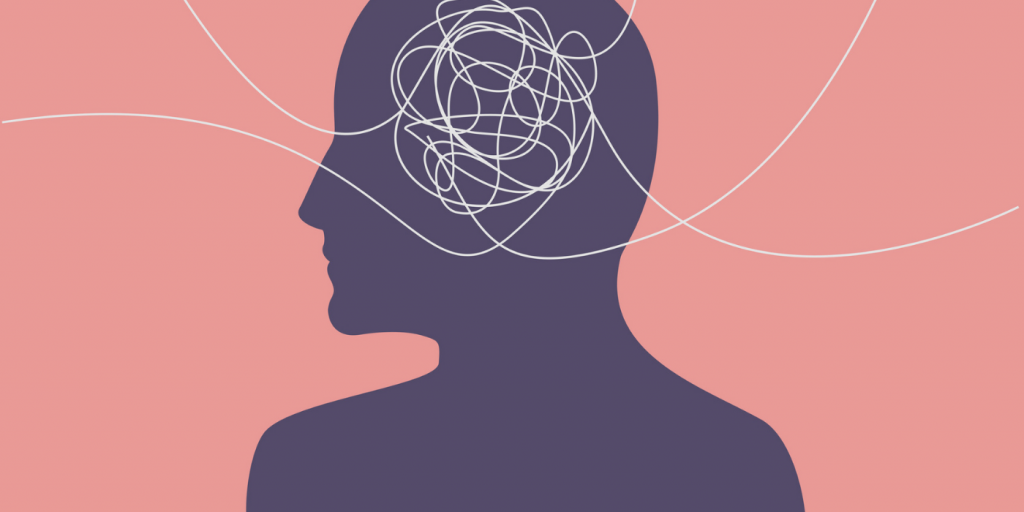Researchers at Trinity College Dublin’s medical school have discovered a genetic mutation that raises a person’s risk of getting Schizophrenia or bipolar illness more than tenfold. When a risk gene like this one is found, it provides scientists with a crucial biological insight into one of the possible risk factors for these frequent illnesses.
Mental Illnesses
Bipolar Disorder
Previously known as manic-depressive illness (MDI), bipolar disorder is a mental illness characterized by rapid swings in mood, energy, level of activity, and ability to focus on daily activities.
There are three distinct types of bipolar disorder. All three types involve noticeable shifts in one’s state of mind, level of energy, and level of activity. For some, these moods can range from euphoric highs to depressive lows (known as manic episodes), which are periods of extreme “up” or “down,” irritable or energized behavior (known as Mania) (known as depressive episodes). Hypomanic episodes are periods of focus that are less severe than full-blown mania.
Schizophrenia
Psychotic disorders such as schizophrenia impact less than one percent of the general population in the United States. Delusions, hallucinations, disorganized speech, mental difficulties, and a lack of motivation are all possible signs of Schizophrenia while active. While Schizophrenia’s symptoms can be considerably improved and the risk of a return can be reduced with therapy, there is no guarantee.
Schizophrenia has no known cure, although research points to new, less harmful therapies. Aside from genetics and behavioral research, experts are now using sophisticated imaging to investigate the structure and function of the brain. These methods promise to bring us new and better treatments in the future.
An episode of inability to discriminate between actual and unreal experiences is a common symptom of the condition when it is active. However, the incidence of severe psychotic episodes reduces with age in those with Schizophrenia compared to those who do not have Schizophrenia. Symptoms can be exacerbated by not following a doctor’s orders, abusing prescription drugs or alcohol, or being under a lot of pressure.
Studies
Bipolar disorder and Schizophrenia afflict one in every fifty Irish adults. However, treatment response varies widely, and the underlying biology is unknown. There is increasing evidence that many illnesses have common genetic risk factors; identifying risk genes provides fresh insights into this biology and can inform novel diagnostic and treatment methods.
In this study, researchers analyzed blood samples from more than 1,564 Irish people with Schizophrenia and 1,748 persons without (the control group) to look for tiny structural abnormalities where genetic material is duplicated or deleted in the genome. They found five people who duplicated the Protein-Activated Kinase 7 (PAK7) gene, and in the control group, there were no instances of such duplications.
While this duplication is extremely rare, it has been verified that it increases one’s risk of developing schizophrenia or bipolar illness more than ten-fold when found in larger European samples (more than 25,000 people) after being identified in the Irish instances. As a result, all of the duplication carriers appear to share a single mutation inherited from a distant, common European lineage, according to the study’s findings.
Results
Genes in the PAK7 family have been shown to enhance brain connections (synapses) in a previously established risk gene pathway (DISC1). The authors also showed that PAK7 and DISC1 interact at the synapse level, especially in adolescence and early adulthood, and that this interaction happens. As a result of these findings, it’s possible that PAK signaling plays a role in developing schizophrenia and bipolar illness through sustaining synaptic networks.
Conclusion
Irish people have mutated genetic disorders. Therefore, they have to face problems. You can consult the best psychiatrists by visiting MARHAM.PK if you also have mental illnesses.
Frequently Asked Questions (FAQs)
1- What is Sizofreniya?
About 20 million individuals worldwide have Schizophrenia, a chronic and severe mental illness. Disorders in thinking, emotions, perception, language, and self-awareness are all hallmarks of Schizophrenia.
2- What does mental health Ireland do?
Our mission at Mental Health Ireland is to help people with lived experiences of mental health issues in their recovery and promote positive mental health and well-being for all individuals and communities, giving the realistic appearance to national policy objectives.
3- What is Mania?
Episodes of manic energy or mood accompany bipolar disorder. We all have different philosophies and energy levels at different times of the day and during our lives. On the other hand, Mania is a significant deviation from one’s typical state of mind and behavior, and it can endure for weeks or months.
4- Is depression common in Ireland?
Sufferers of depression need not suffer in silence. Under-recognition and under-treatment are regrettable consequences. People in Ireland take antidepressants at a slightly lower rate than the European average of 7 percent and significantly lower than Northern Ireland.

